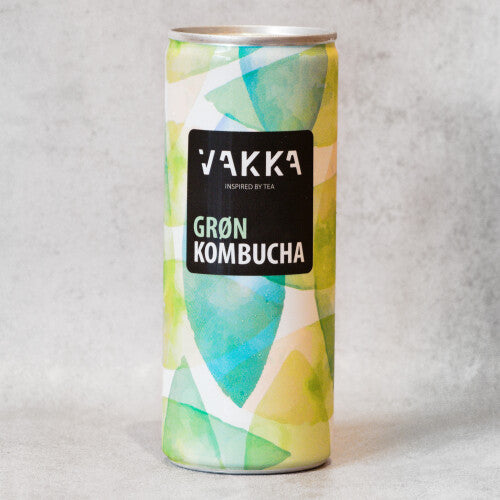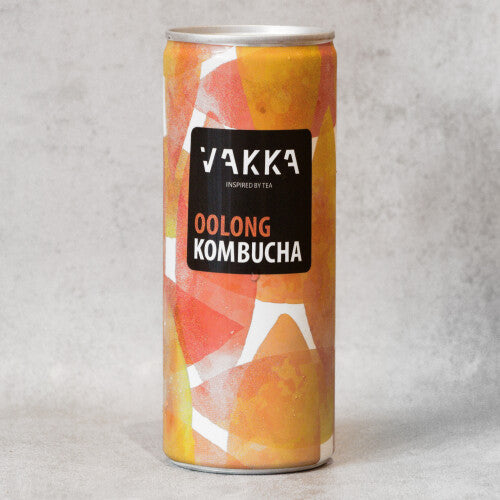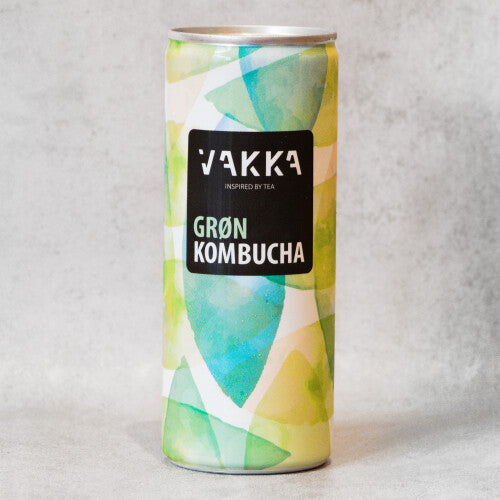What is Kombucha?
Kombucha is a fermented tea drink that is usually made by combining tea leaves and sugar with a symbiotic culture of bacteria and yeast, also known as a SCOBY (symbiotic culture of bacteria and yeast). The SCOBY starts the fermentation process by breaking down the sugar in the tea into alcohol and acetic acid, giving the drink a slightly sour taste. After the fermentation process, there will be very little alcohol left in the drink.
Kombucha is occasionally hailed for its potential health benefits, and with much focus on the fermented product's effect on domestic flora, the drink has become more popular. However, it is important
to note that the scientific evidence of the drink's beneficial effect on the intestinal flora is still limited.
VAKKA organic Kombucha has no added flavor components and therefore has the authenticity and characteristic taste of the organic teas used, which has led several reviewers to rate the Kombucha as one of the best on the market.
History of Kombucha
Kombucha's origin is not clear, but much suggests that Kombuchas originated in northeastern China, where it was drunk for over 2000 years as a healing drink. It is believed that kombucha was discovered by chance when an empress of China tasted a drink that had been fermented by a SCOBY. Over the centuries, Kombuchas first spread to other parts of Asia and later to Russia and Europe. In Russia it was known as "tea kvass" and was drunk by commoners and aristocrats alike. During World War II, it became popular in Germany as a cheap substitute for black tea,
and it later spread to other parts of the world.
In recent years, Kombucha has become increasingly popular in the Western world, mainly because many believe there are potential health benefits and because of its unique taste.
Today, Kombucha has become a popular drink worldwide and Kombucha is available in many supermarkets, health food stores and cafes around the world. Sales of kombucha have increased significantly in recent years and, like cider, are expected to continue to grow in the future.




